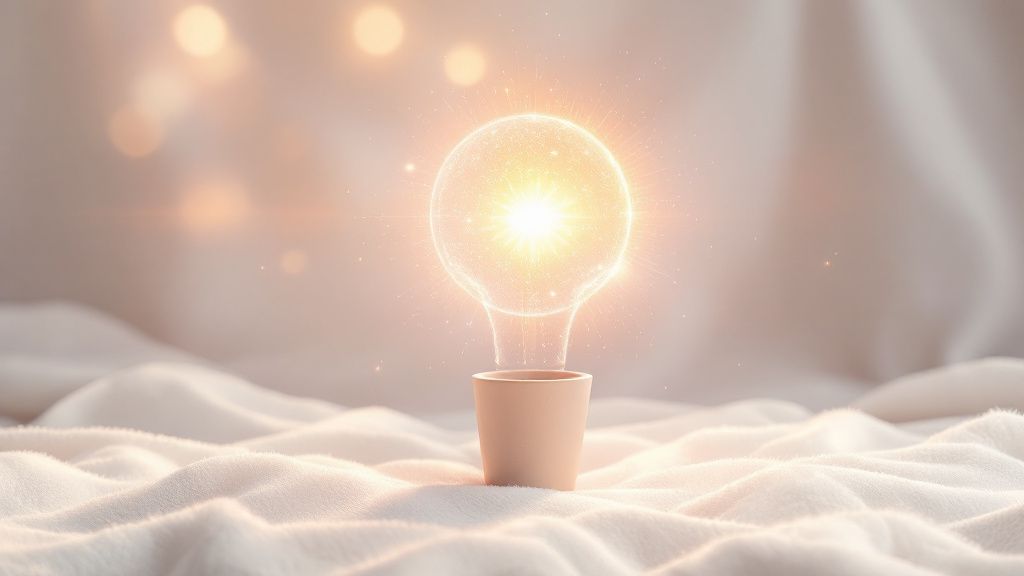Why We’re Seeing a Shift from Hyper-Caffeination to Gentle Energy
Key Takeaways
- There is a noticeable shift from hyper-caffeination to seeking gentle energy sources.
- Excessive caffeine use can lead to withdrawal symptoms and energy crashes.
- People are increasingly exploring natural energy boosters and caffeine alternatives.
- Cultural trends favor wellness and sustainable energy practices.
- Transitioning involves gradual change and incorporating healthier lifestyle choices.
In today’s fast-paced world, the pursuit of boundless energy has led many to rely heavily on hyper-caffeination. However, you might have noticed a growing trend towards gentle energy sources. This shift is driven by a rising awareness of the drawbacks associated with excessive caffeine use, including caffeine withdrawal symptoms, which can be both unpleasant and disruptive. As more of you prioritize your health and well-being, the focus is shifting towards natural energy boosters and caffeine alternatives. These options promise sustained energy without the jitters, crashes, or dependency. This movement reflects a broader societal change towards a more balanced, mindful approach to energy consumption.
Understanding Hyper Caffeination
Hyper-caffeination has become a familiar phenomenon in modern society, largely influenced by the demands of a busy lifestyle. You may find yourself reaching for that extra cup of coffee or energy drink to stay alert and productive. This reliance often leads to consuming more than the recommended amount, with coffee chains and beverages emphasizing higher caffeine content as a selling point. It's a cycle that promises initial energy bursts but may ultimately contribute to an overwhelming sense of fatigue later.
You might be surprised to learn that one unpopular opinion about hyper-caffeination is that its benefits are often overstated. While caffeine is celebrated for its immediate invigorating effects, its efficacy is sometimes exaggerated, leading to unnecessary overconsumption. Caffeine alternatives are gaining traction for this very reason. People are starting to explore these options not only to avoid caffeine withdrawal symptoms but also to embrace a more holistic approach to their energy needs.
The excessive consumption of caffeine can also lead to undesirable side effects. Experiencing jitteriness, increased heart rate, and the dreaded afternoon energy crash are common complaints. You may even encounter caffeine withdrawal symptoms, like headaches and irritability when you skip your usual dose. These drawbacks have prompted a reevaluation of how you might better manage your energy levels without relying solely on coffee and energy drinks.
In response to these challenges, the interest in natural energy boosters is growing. These alternatives, such as adaptogens, vitamins, or even simple dietary adjustments, offer a smoother, more balanced energy increase. Unlike hyper-caffeination, which can feel artificial and short-lived, these options advocate for sustained vitality. You see this trend across various platforms, with influencers and nutritionists highlighting the importance of balance over buzz.
For those seeking a gentler solution, the journey doesn't need to end with caffeine. Understanding the potential pitfalls of hyper-caffeination encourages you to explore healthier ways of maintaining your energy. By embracing a more balanced approach, you'll find that there are many paths to achieving sustained energy throughout your day.

The Shift Towards Gentle Energy Sources
The shift towards gentle energy sources is increasingly noticeable in how you choose to fuel your body. You may find yourself drawn to options that promise natural and sustained energy, leaving behind the roller-coaster effects of hyper-caffeination. This transition is part of a broader desire to focus on wellness, driven by the unpleasant experiences associated with caffeine withdrawal symptoms and the growing appeal of more sustainable energy practices.
Exploring natural energy boosters has become more common as you seek healthier alternatives. Adaptogens like ashwagandha, nutrient-rich foods, and consistent hydration are just a few examples of what people are turning to. These options provide stable energy levels throughout the day, reducing dependence on caffeine. They offer a gentler path to vitality, ensuring you feel more balanced and less reliant on constant caffeine consumption.
In the near future, the popularity of caffeine alternatives is likely to increase significantly as more people become aware of their benefits. This shift will pave the way for innovations in the beverage and nutrition industries, as they cater to the growing demand for products that align with this more health-conscious lifestyle. Expect to see a wider variety of gentle energy solutions become mainstream, supporting a new era of well-being.
Health Benefits of Gentle Energy
Embracing gentle energy sources can lead to a multitude of health benefits. By opting for natural energy boosters, you can experience improved mental clarity, sustained alertness, and reduced fatigue without the peaks and troughs associated with caffeine. This approach supports a more balanced lifestyle, where your energy levels are steady, and you feel more in control of your day-to-day activities, free from the abrupt crashes linked with hyper-caffeination.
To truly appreciate the advantages of gentle energy, shifting your mindset from relying on instant energy spikes to seeking a more consistent and balanced energy flow is crucial. This new perspective encourages you to focus on holistic well-being, understanding that energy obtained from nutrition and lifestyle choices can lead to long-term vitality. It’s about realizing that power derived from genuine sources allows for better overall body function.
Reducing dependency on caffeine and embracing caffeine alternatives can also alleviate the negative symptoms associated with withdrawal. By minimizing these symptoms, gentle energy solutions contribute to a more pleasant and less stressful daily experience. Your body's ability to naturally adjust rather than rely on artificial stimulation promotes a healthier, more sustainable way of living.

Cultural Shifts Influencing the Change
The cultural shifts influencing the move towards gentle energy are rooted in a growing understanding of wellness and mindfulness. You may have noticed that many people are now prioritizing health and self-care, leading to a reevaluation of energy sources. This shift reflects a broader cultural trend towards valuing sustainable, long-term health strategies rather than quick fixes, aligning with the rise of natural energy boosters over hyper-caffeination.
When comparing the allure of hyper-caffeination with the emerging preference for gentle energy, it becomes clear that people are seeking more than just a quick jolt of alertness. While hyper-caffeination relies on concentrated doses that often result in caffeine withdrawal symptoms, gentle energy promotes well-being by offering consistent and steady energy with fewer side effects. This comparison shows a distinct cultural turn towards valuing the quality of energy over quantity.
The dialogue around caffeine alternatives is also being shaped by broader societal influences, such as the increased focus on mental health and environmental sustainability. You’ll see in various forums that discussions about reducing stress and living in harmony with the environment are becoming more common. This cultural shift is paving the way for alternative energy solutions, fostering a more holistic, balanced approach to personal health.

How to Transition to Gentle Energy
Transitioning to gentle energy sources involves embracing a few strategic lifestyle changes. The first step is to gradually reduce your caffeine intake, which helps you avoid severe caffeine withdrawal symptoms. You may find it helpful to slowly replace your usual caffeinated beverages with caffeine alternatives, such as herbal teas or chicory root coffee. These substitutes provide a comforting ritual without the dependency.
To make the most of this transition, try incorporating a variety of natural energy boosters into your daily routine. Foods rich in nutrients, like nuts, seeds, and whole grains, can provide steady energy throughout the day. Additionally, staying well-hydrated and maintaining a balanced diet supports sustained vitality. Regular exercise can further amplify these benefits by naturally increasing your energy levels.
Integrating mindfulness practices can also enhance your transition to gentle energy. Techniques such as meditation or yoga encourage mental clarity and reduce stress, enabling you to tap into your body's intrinsic power. By fostering a deep connection with your mind and body, you are better equipped to maintain balance and resilience in daily activities, consequently embracing a life of gentle vigor and wellness.
Frequently Asked Questions
Why is there a shift from hyper-caffeination to gentle energy?
This shift is driven by increased awareness of caffeine's side effects and a growing preference for sustainable energy sources.
What are some natural energy boosters?
Natural energy boosters include foods rich in nutrients like nuts and fruits, as well as activities such as exercise and adequate hydration.
How can I transition to gentle energy?
You can transition by gradually reducing caffeine, incorporating natural energy sources, and adopting healthier lifestyle practices.
Will reducing caffeine intake cause withdrawal symptoms?
Yes, sudden reduction in caffeine can cause withdrawal symptoms like headaches and fatigue, so it's recommended to decrease gradually.
Are caffeine alternatives effective?
Yes, caffeine alternatives can be effective in providing steady, sustained energy without the highs and lows associated with caffeine.
 Ratio Eight S2
Ratio Eight S2
 Ratio Eight Original
Ratio Eight Original
 Ratio Six
Ratio Six
 Ratio Four
Ratio Four
 Compare Machines
Compare Machines






